Meet Florian Vermeersch, the history student and local councillor who finished second at Paris-Roubaix
The Lotto Soudal rider on living up to new expectations, the fresh approach of his team, and how time trialling helps in the Classics
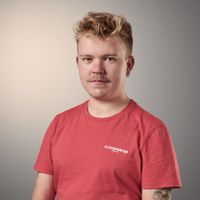
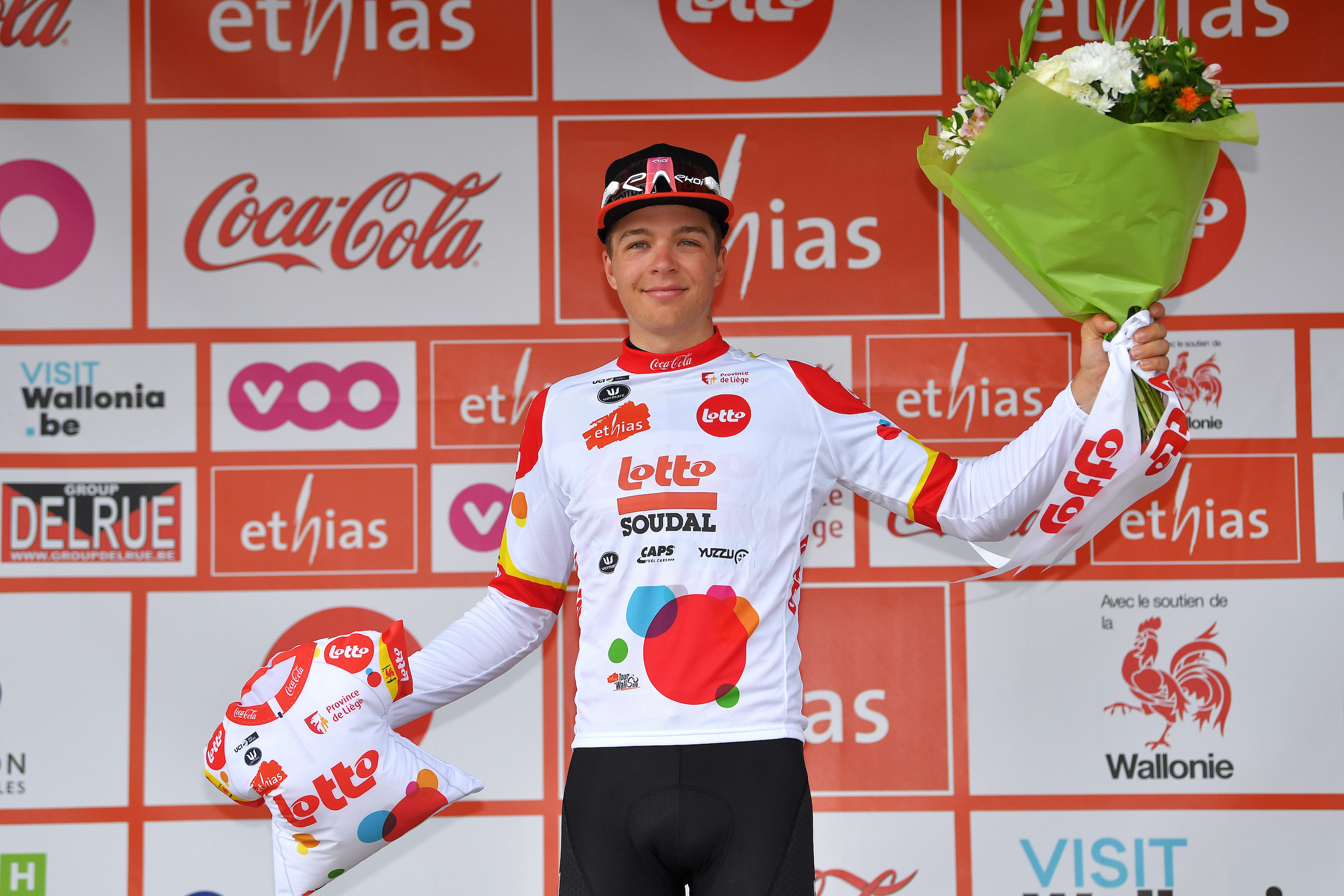
What were you doing at 18? You might have been at university, or just starting out in your first real job, you might have moved out of home. Juan Ayuso was dominating the Baby Giro, on his way to the WorldTour already.
Florian Vermeersch became a town councillor for the Open Vld party in Lochristi, East Flanders. The Lotto Soudal rider says that he “never imagined” that he would have been elected at such a young age.
“It just happened by coincidence,” he explains. “I know the mayor of our city, and I got a membership for the party. One day he came to me and he said, like, ‘For the next elections, we have one vacant spot, somebody cancelled because she doesn't have any more time for it. Are you willing to maybe fill in for her and just see what happens?’
“I said I will do it but I never expected to be elected. I got a chair, and it was really a special moment. I never imagined myself to be a councillor at the age of 18.”
Vermeersch is on the committee that deals with road safety and transport and the town: “It's the local stuff that really interests me the most.”
He dials in to virtual meetings when he’s on the road as a professional cyclist, but he misses the atmosphere of in-person council. “I don't really like online meetings, because it takes away the personal side of things,” he explains to Cycling Weekly.
“I like it more when everybody's together in the council room, and you can argue and debate a little bit. Because when you do it in an online meeting, then someone has to take turns, and when someone is interfering with one another, you cannot hear anything.”
The latest race content, interviews, features, reviews and expert buying guides, direct to your inbox!
Being a councillor is not the only ball the young Belgian is juggling, he is a history student as well, at the University of Ghent.
Keeping his studies up alongside his career as a professional cyclist is “not easy, but it's doable”.
“The main advantage about the whole Corona situation is that the classes are uploaded online,” Vermeersch says. “So I missed a lesson on Tuesday, then I can rewatch it on Thursday. I don't have to miss anything. I have to thank the university for that as well. If I want to reschedule an exam, they wouldn't give me a hard time, they try to be as flexible as possible.
“That's how I can still manage to do my history degree and, and my job as a cyclist. It's going perfectly at the moment.”
His main interests are in late 19th, early 20th century history, stuff around the fin de siécle, but especially the First and Second World Wars. He also enjoys studying antiquity, but it was military history which first brought him into the subject.
It helps that he is from East Flanders, where the scars of the world wars are still all too obvious: “Where my parents live, there is a bunker from the Second World War, like one kilometre away, just to give you an example. Then a race like Gent-Wevelgem starts under the Menin Gate. It's just the best of both worlds for me.”
Sadly, he can’t do much history sightseeing during races, but still tries his best. “In a race, it's hard. It's almost impossible,” Vermeersch says. “But in training, like when we do some recons or stuff, then it's not so hard to focus on other things as well.
"When we did our last recovery ride before [Paris] Roubaix, we passed Compiegne, where the peace treaty was signed. That was something special for me and I told my team-mates about all that. That was pretty cool.”
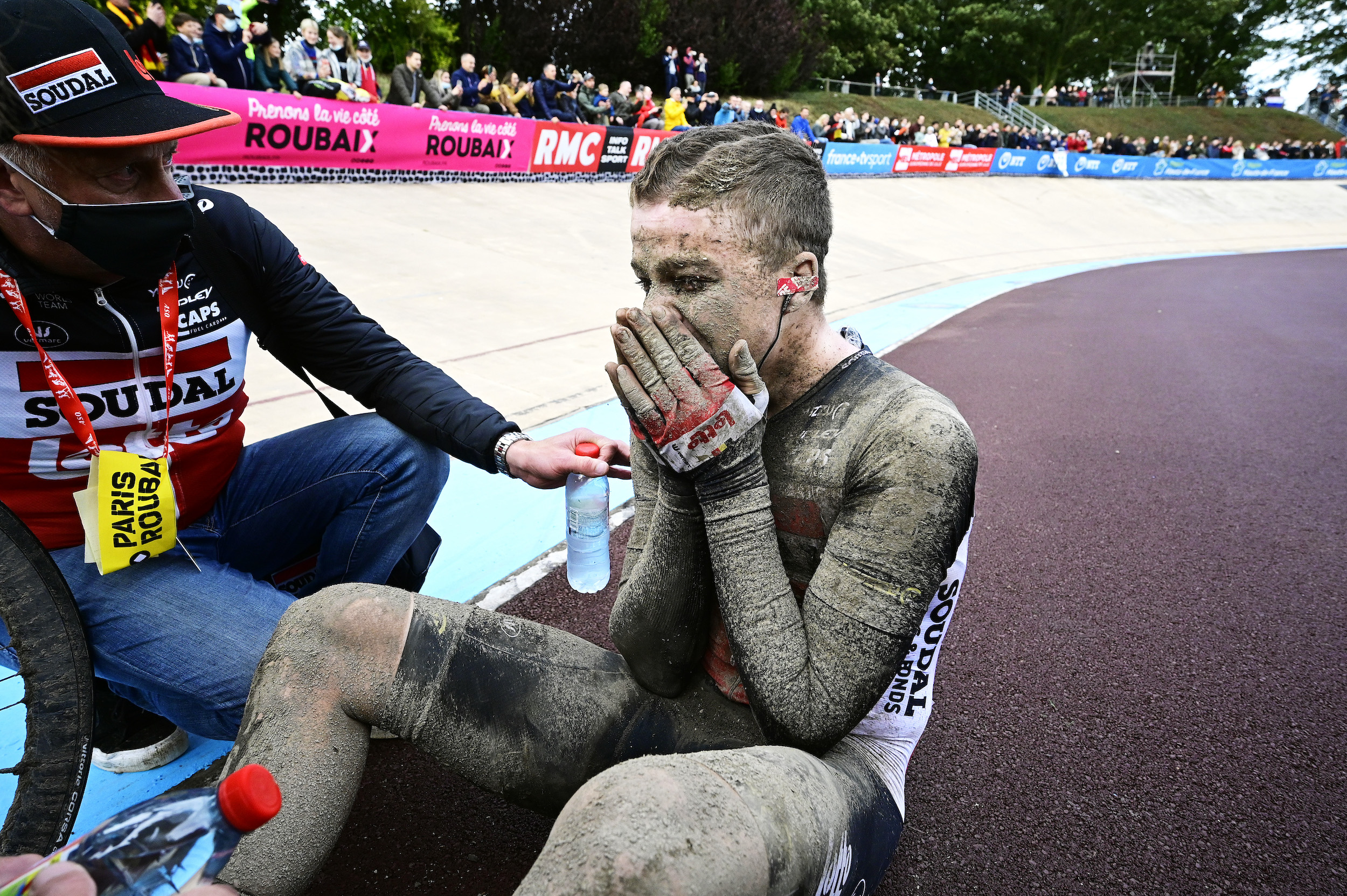
Vermeersch in the famous Roubaix velodrome after finishing second in October
There is much more to Vermeersch than history and politics, however. The 22-year old stunned everyone when he was the last survivor of the breakaway at October's Paris-Roubaix, and finished second in the Hell of the North at his first attempt.
The Flandrien beat Mathieu van der Poel in the final sprint, and finished well ahead of luminaries of the sport like Wout van Aert, and former winners like Peter Sagan and Greg Van Avermaet.
He was suddenly compared to Tom Boonen, another Belgian who cracked the Roubaix podium at his first attempt, back in 2002, and had to deal with all the media attention that comes with being a Belgian hope at a monument.
“The first weeks were really hectic,” Vermeersch explains. “I said to our press officer 'Okay, the first days, I will accept all the requests you want, but I still have to focus on Paris-Tours next week, so I want you to block off the interviews in the second part of the week'.
“After the season, it got a little bit busier again, but because I didn't have to train, it was not much, I was not getting tired of it, you know? Then when I started training, there was not much going on because yeah, the road season is still so far away.”
His friends and family were a “little bit overwhelmed” by all the media attention.
“My friend said 'Stop it, you're everywhere at the moment, we see your face, way too much'. Now it's all back to normal sort of. It's just like last year.”
Now he has tasted the podium at Roubaix, his drive is even higher to repeat it or go one better at the monument.
“Now I know the feeling of riding the final and it's the best feeling in the world, that's why I became a professional cyclist,” he says. “Together with trying to win of course. Now my motivation to win that race is even higher because I was so close already. I could almost feel the win. So now I'm even more motivated to be on the top step one day.”
It is a race that undoubtedly suits him and his characteristics. The powerful Belgian has a background in cyclocross, which he thinks suited him in the particularly wet edition of Roubaix; he has never ridden a dry version.
“I wouldn't say I enjoyed it,” Vermeersch explains “But I didn't feel demoralised by it, you know? There were a lot of riders at the start who were like afraid or scared about the cobbled sections, because they obviously knew what was coming.
“Maybe that was also my biggest advantage, that this was my first Roubaix and I didn't really know what to expect. But as a former cyclocross rider I was not afraid of the rain.”
Out of all the Classics, it is Roubaix that he dreams of: “I think it's fair to say that Roubaix suits me best. I'm, of course, a bit heavier than most of the guys in the peloton. And like, Roubaix is all about power, so I can say I feel this race suits me the best then.
“All my qualities are closest to that race. But of course, the Flemish Classics are also really important to me. And I think they suit me extremely well, as well.”
Following up on his breakout performance will be hard, the difficult second album to his first hit. He is likely to be more marked, more of a known figure around the peloton. Vermeersch is aware of this, however.
“I think it will be hard to approach the race itself, the day itself, the same as last year because now more guys in the peloton and more teams will know me,” he says. “So it will be harder to get in the break again. I think I have to assume that it will be hard to be in the break again.
“I will have to come now from the back with the other big engines. We will have to see, you know, there's also a chance that I'm in the breakaway again. With this race the first hour you never know. That's what I experienced this year. It's such a crazy race, especially in the rain. So yeah, we'll just have to wait and see.”
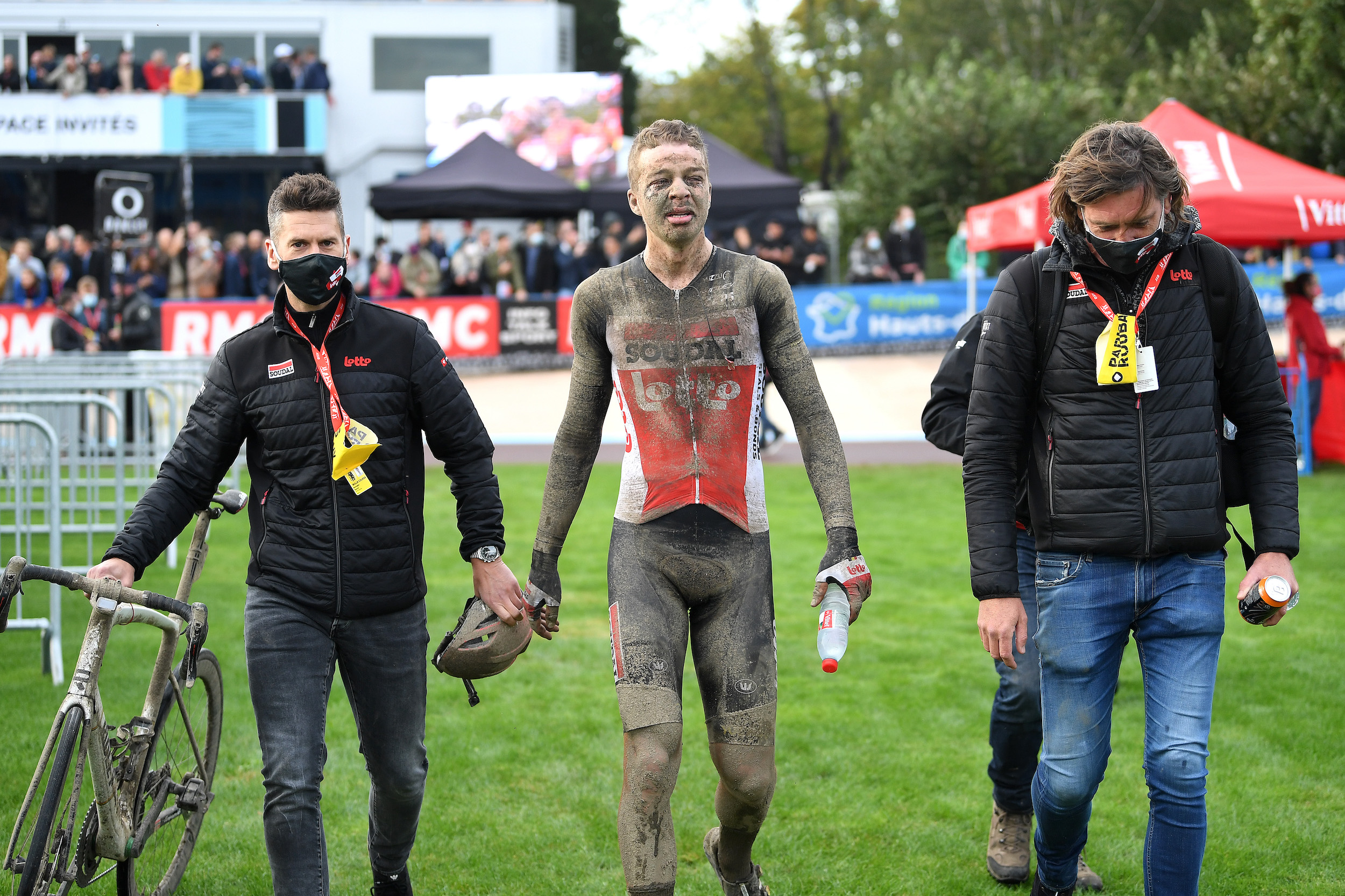
Vermeersch’s main strength is the power he is able to put down; he is also a competent time triallist, finishing third at last year’s under 23 World Championships.
Perhaps it is more Fabian Cancellara that the young Belgian should be looking to emulate rather than Boonen, with the Swiss rider using his power to win three editions of Roubaix.
Time trialling is not his focus at the moment, but will be once the Classics season is over; he describes this as the “perfect combination”.
“I think if you are a good time triallist on long efforts, then you can also use this in the Classics,” he says. “It's not always about riding as fast as you can on one hill, you just have to be able to hold a really high power for a lot of minutes or even a few hours. If you're able to do that in a time trial, then it can really help you in the classics as well.”
He rode his first Grand Tour last year, the Vuelta a España, and thinks that it has helped him already, despite a lack of notable results. His best finish was ninth on stage two, but that was not his main aim for the race.
“It was a really good experience for me,” Vermeersch explains. “The results were not the best. But for my development as a rider, I think it was really crucial. I did a lot of kilometres, a lot of climbing. I think it just made my engine bigger. I think I have more volume now. And I think it can really help me towards the big Classics.”
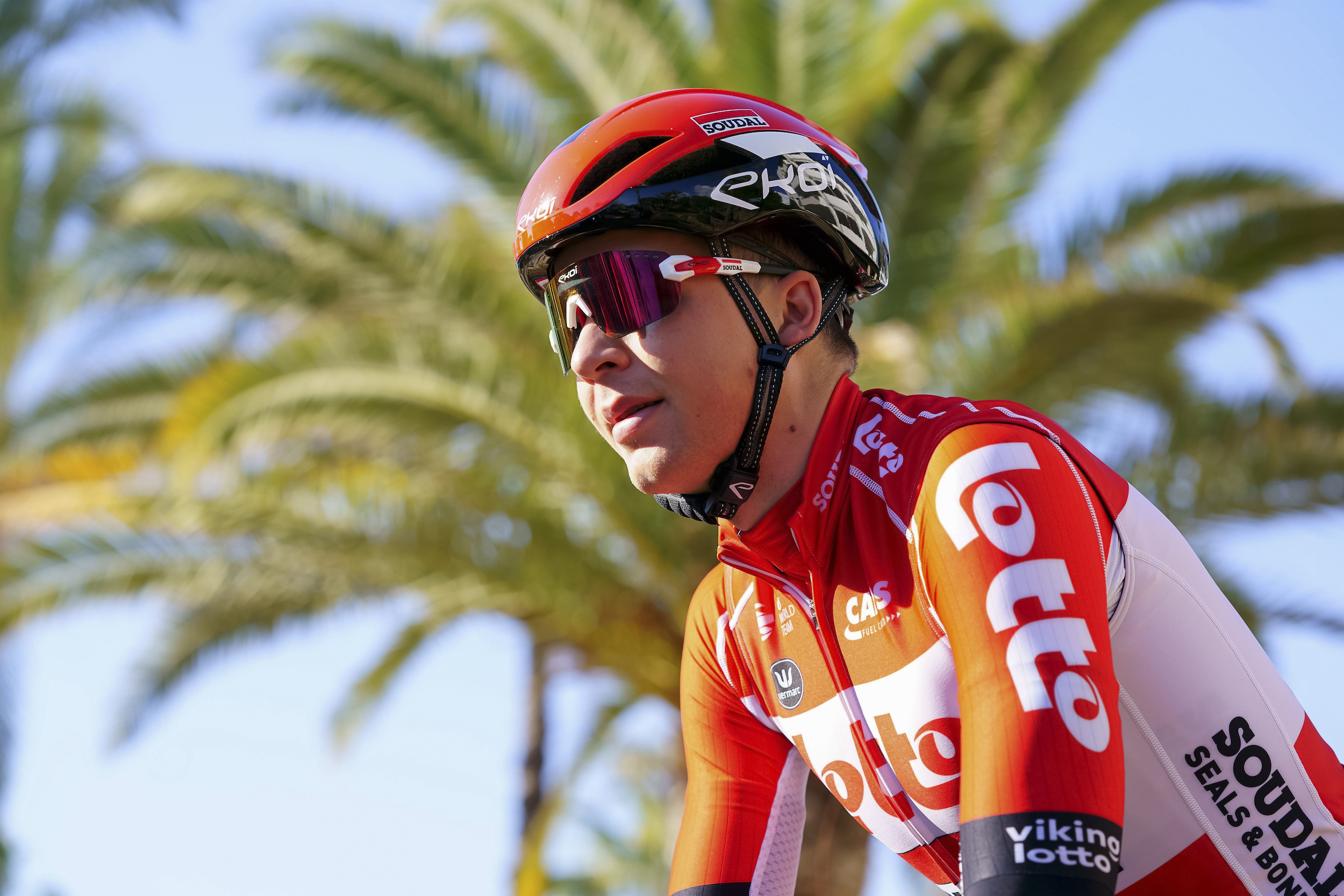
Vermeersch rides for Lotto Soudal, a team that has a lot of pressure riding on it this year. The Belgian squad finished near the bottom of the UCI’s rankings last season, and with three-year WorldTour licences being awarded at the end of this season, they need to get more wins on the board in order to stay at the top table.
Fortunately, they have already won five races with four different riders already this season, so they have started brightly. The team had a significant shakeup in its management structure over the off season, and Vermeersch reckons there’s a “new spirit” visible already.
While he says that he does not think about the rankings too much so far, he admits that it is a “reality” and “we need those points”.
“Generally speaking, there's a new atmosphere and a new spirit in a team,” he explains. “It's almost like everybody sees this season as a new start for us. We have a lot of young guys, including myself. It's an important year for us, because of the WorldTour ranking at the end of the year. The spirit was really high, and everybody was extremely motivated.
“We think we also made some new positive steps towards a more professional approach. I think every rider was happy and is motivated to show the best of themselves. This was something I was a little bit afraid of in training camp before the season, because it's easier said than done, to make results. But now we already have five wins. I'm really happy to see that the spirit of the training camp is now also there in the races.”
That fear will hopefully turn into results for the 22-year-old, who is aiming to back up his promising first full road season with Lotto Soudal.
To that end, he has been spending time at altitude, albeit in a hotel in Spain, Syncrosfera, where the conditions are simulated.
“It's a little bit different because now I'm in the hypoxic hotel,” Vermeersch says. “My strategy towards the first race of the season is a little bit different than last year. Last year, I did more preparation races towards the Classics.
“I actually feel like I'm in better shape at the moment than last year. I did everything I wanted to and I didn't overdo myself. I think that was maybe a little bit of a mistake last year that I wanted to start training too hard, too early. This year, I did it a little bit smarter I think.”
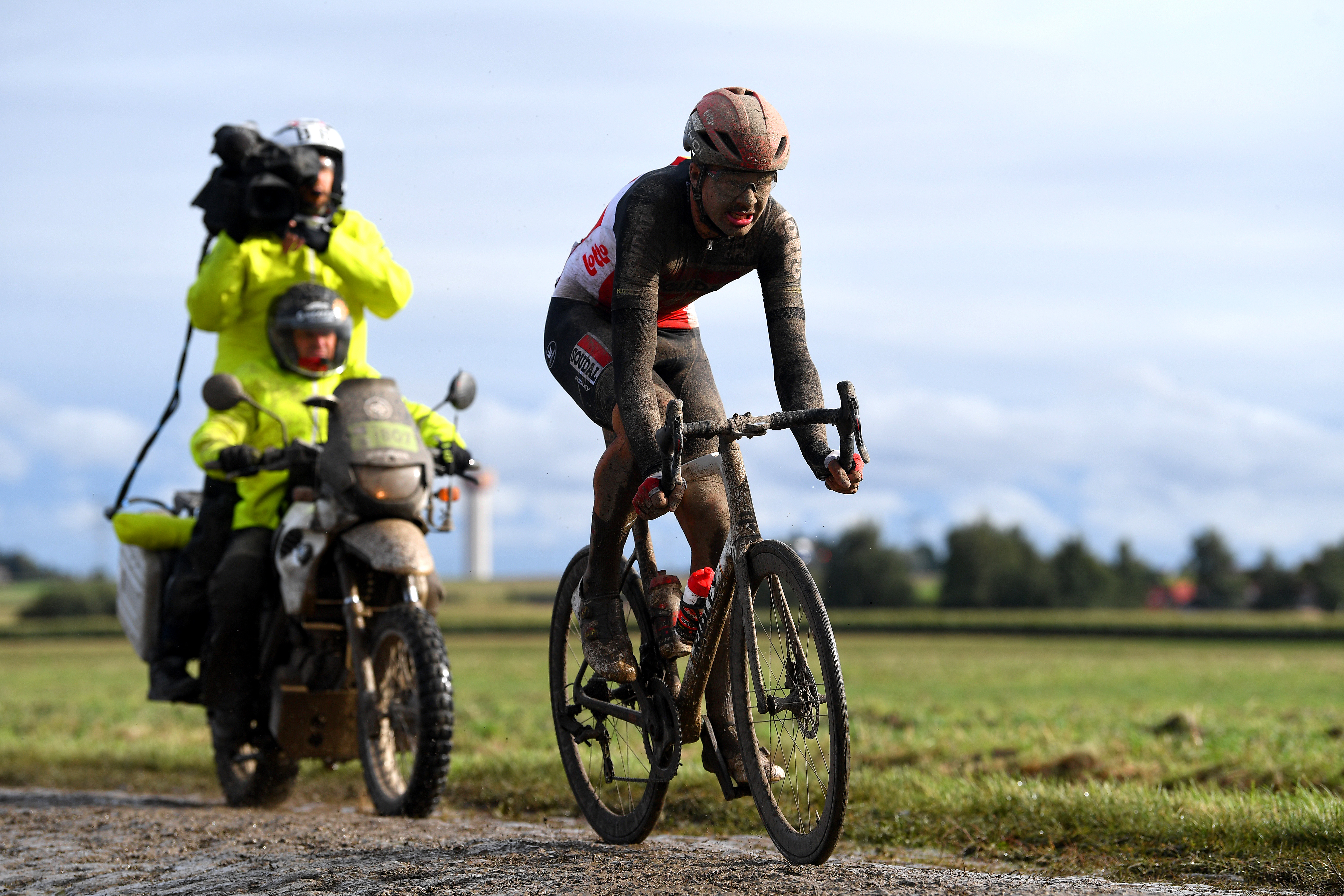
He will make his season debut at the Tour des Alpes Maritimes et du Var, before diving straight into the Classics season at Omloop Het Nieuwsblad a week later.
Vermeersch’s big aim for the year is to prove that it was not a one off, to be in the final of a race again, hopefully a big Classic.
“This year, I hope to be part of a final,” he says. “I just want to have the feeling that I can compete for the win or for a top 10. Not necessarily win, of course, because I know it's really hard. I cannot expect that I will be on the podium of Roubaix again, this year.
“If I set my bar here, then I will be too disappointed. Then you can never be satisfied with your campaign. So I just want to keep the expectations for myself a little bit lower, and just see where I get. It's maybe kind of a cliche, but that's really how I will approach this Classics season.”
It sounds like he is grounded, and knows not to set his hopes too high, but do not count against the politician-cum-history student in big races, especially his favourite, Roubaix.
“I would be happy if I would be able to ride the final, to show myself,” Vermeersch concludes. “But the dream is, of course, to win a Classic. That will be the same every year. That doesn't change.
“It's not something I really expect for myself already this year. It's more like being up, having a good shape, feeling like I can compete, that I don't feel weaker than someone else. Hopefully, we can get a good result.”
Now he has tasted the sweet nectar of success at Roubaix, his goal is to experience that again over his career; he certainly has the skill, and the time.

Adam is Cycling Weekly’s news editor – his greatest love is road racing but as long as he is cycling, he's happy. Before joining CW in 2021 he spent two years writing for Procycling. He's usually out and about on the roads of Bristol and its surrounds.
Before cycling took over his professional life, he covered ecclesiastical matters at the world’s largest Anglican newspaper and politics at Business Insider. Don't ask how that is related to riding bikes.